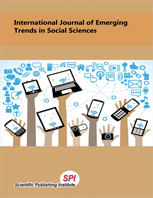Transformative Constitutionalism in Post-Colonial Africa: A Framework for Democracy and Human Rights Protection
DOI:
https://doi.org/10.20448/2001.31.29.45Keywords:
Transformative Constitutionalism, Constitution, Transformation, Democracy, Rule of law, Human rights, Post-Colonial Africa.Abstract
The aftermath of World War II and the advent of independence in post-colonial Africa was marked by aspirations for constitutionalism, democracy, the rule of law, and human rights protection. With the arrival of independence, primarily in 1960, many African states discerned the need to draft new constitutions that ensured effective democracy, human rights protection, and the participation of citizens in the democratic process. Especially after 1990, when multi-party systems evolved in Africa, these constitutions have been subjected to several alterations and amendments. The changes appear to have heightened the desire of the people for a substantial transformation towards constitutionalism, democracy, and effective protection of human rights and fundamental liberties. Despite several amendments to some African constitutions, for instance, in Cameroon, these constitutions, if not all, have failed, to some extent, to attain the object of transformation and the peoples’ aspiration for change. Some of the constitutions adopted were only superficially different from the provisions they had replaced. What remains questionable is whether constitutional amendments in most post-colonial African states can be perceived or described as having attained complete transformation despite the fact that they have not been able to ensure the object of constitutionalism, democracy, the rule of law, and effective protection of human rights and freedoms. The purpose of this paper is to critically analyse the concepts of constitutionalism and transformative constitutionalism as a framework for democracy and human rights protection in post-colonial Africa with specific focus on Cameroon in a comparative perspective. The paper also aims to ascertain whether African states with modern constitutions are necessarily transformative in nature despite the lack of effective protection of human rights and fundamental freedoms.


